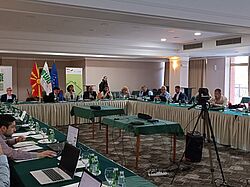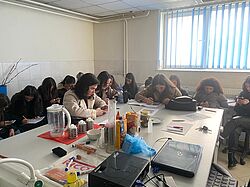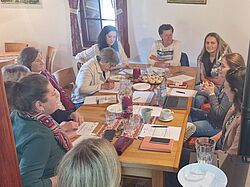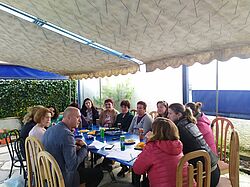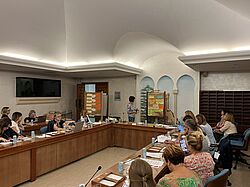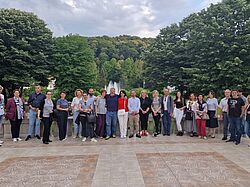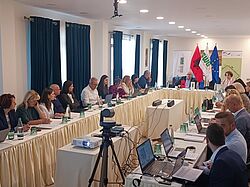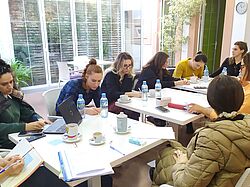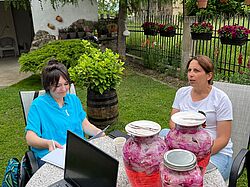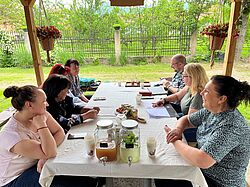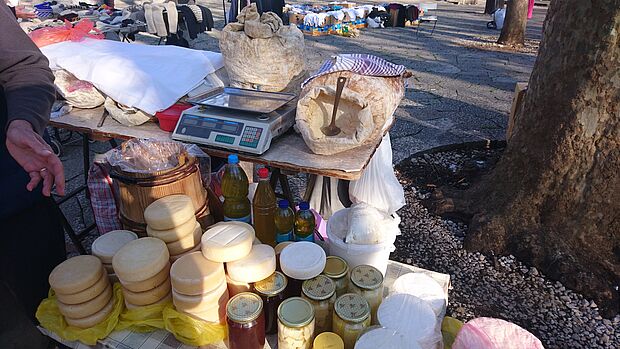
Rural Women & Youth
Focus
The working group for rural development, women and youth contributes to a better understanding of key rural development issues to develop suitable policies for regional promotion. Since 2022, it has been dealing with the living situation of women and young people in the rural areas of the Western Balkans.
Activities
Two comprehensive empirical studies are currently being developed: a youth study and a women's study. The focus is on the causes of the strong migration to cities and neighboring countries as well as on potential success factors for (young) entrepreneurs in agriculture and related sectors. As part of the studies, the situation in the participating countries is first analyzed individually and summarized in a country report. The country reports are then consolidated in a final report.
The following methodology is used for both studies:
- Qualitative approach with expert interviews and focus group discussions
- Quantitative approach with a standardized questionnaire: 2,000 interviews with young people and 2,400 interviews with rural women were conducted.
- Evaluation of secondary data and government reports
Youth study
Goals and procedure
With the support of the Leibniz Institute of Agricultural Development in Transition Economies (IAMO), the working group initially conducted a study on adolescents and young adults in the region. The aim is to promote the personal development of young people and young adults through better social and economic participation. The causes of emigration are also being investigated and possible countermeasures recommended.
Initial results of the study were presented at the 23rd Agricultural Policy Forum (APF) in Podgorica, Montenegro, in 2023. The publication of the country reports and the transnational final report is planned for 2024.
The study is part of the research project "Study on the Situation and the Needs of Rural Youth in the Western Balkan Countries/Territories", which is jointly supported by BMEL and FAO.
Results
The evaluation of the youth study shows that most of the teenagers and young adults surveyed have a positive attitude towards life in the countryside. Many find rural life fulfilling and pleasant and do not automatically see rural areas as underdeveloped or boring.
However, agriculture is playing an increasingly minor role in the lives of teenagers and young adults in the Western Balkans. Only a third of those surveyed came from a farm and even fewer came from a full-time farm. Furthermore, only 6% of 15- to 19-year-olds stated that they wanted to become a farmer. Overall, the results indicate a progressive deagrarianization of rural areas in the Western Balkans and an increasing importance of the non-agricultural sector.
Women's study
Goals and procedure
Since 2023, the focus on women has been methodically linked to the youth theme, but concentrates primarily on how women in rural areas can be empowered. Particular attention is paid to the potential of rural women as green and social entrepreneurs who can make a significant contribution to rural development.
The study is being carried out by APD with the support of GIZ North Macedonia and in cooperation with the Balkan Rural Development Network as an associated partner.
Results
The country reports were presented and discussed at the working group meeting in Albania in May 2024. Overall, a rather uniform, unsurprising picture emerged: women in rural areas face numerous socio-economic challenges, e.g. fewer employment opportunities, unpaid care work, less ownership and decision-making power and poorer access to resources. The preliminary results of the Empowerment Index were also presented.
The publication of the final report is planned for early 2025.
Publications
As soon as they have been published, you will find the links to the studies and country reports here.
Further information
Further information and presentations from the working group meetings can be found here.


